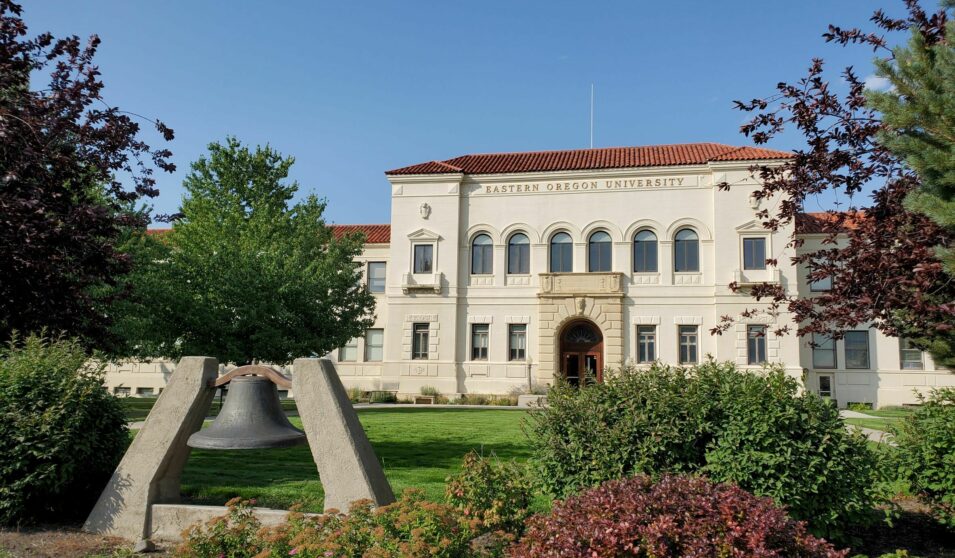When asked about Oregon, we commonly think of references to Portland, the state’s largest city, the coast, and the temperate rainforest that blankets the state’s western end. However, just past Mount Hood and the Cascade Range lies a vast expanse of high desert nurturing a rich network of storied communities. Eastern Oregon represents the geographic majority of the state, and yet only half a million people call this region larger than New England home. Communities in this region are not only largely rural, but physically isolated as well. A strong sense of working together to overcome challenges is therefore a necessity of life and a source of constant pride for folks in the region.
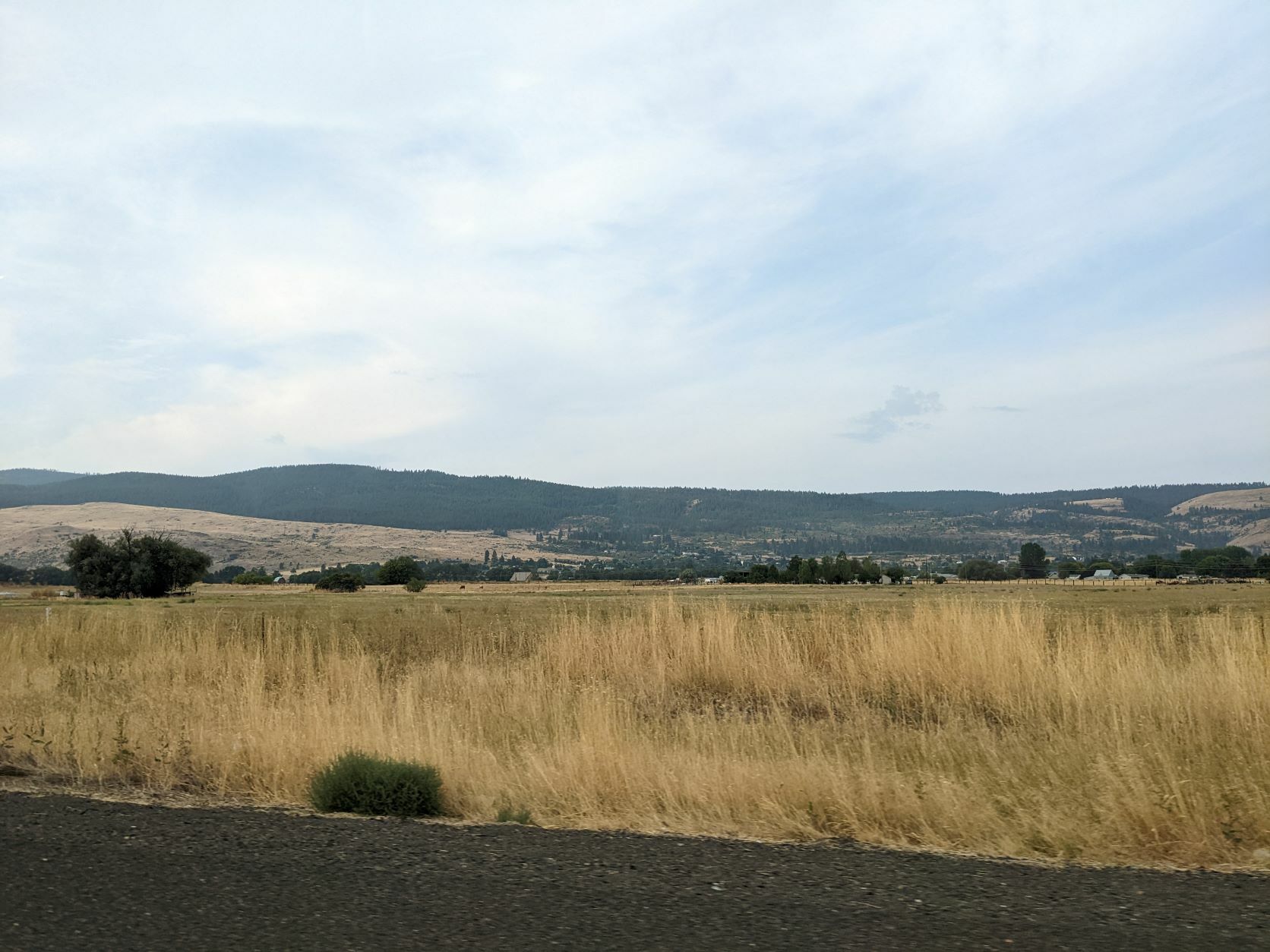
Hoping to learn more about this sense of togetherness, the Rural Schools Collaborative team recently made the trek to La Grande, OR, to visit our Pacific Northwest Region Hub partners at Eastern Oregon University. EOU was founded in 1929 at the normal school covering the eastern half of the state. Though it has evolved over the years, EOU’s commitment to the people and places of Eastern Oregon has remained strong throughout. In addition to meeting many EOU partners in person, we were thrilled to learn more about this growing catalog of exemplary rural work EOU has been thoughtfully cultivating. EOU’s hallmark Teach Rural Oregon program was an early point of collaboration between the University and RSC, which is complemented by a whole host of innovative, rural school-focused programming. Each of these parallel efforts are weaving together schools and communities by: engaging students with place-based education, enabling students to launch community-focused projects, empowering rural teachers, and expanding career pathways.
GOSTEM
One program generating innovation and opportunity in EOU’s region is the Greater Oregon Science, Technology, Engineering, and Math (GOSTEM). Headed up by David Melville and Stefanie Holloway, GOSTEM is part of a state-wide effort to increase student interest, preparation, and attainment of STEM education and careers. GOSTEM serves 28,000 rural students across the largest geographic region in the Oregon STEM Hub network.
Stefanie and David shared that they’re deeply passionate about building up relationships at local schools as well as collaborating with other STEM Hubs to ensure students can explore new topics and careers. For example, David and Stefanie were excited about their new Mobile STEM Lab, which will tour across the region to visit in-need schools. The Mobile Lab enhances STEM education for students and teachers alike by offering its cache of hands-on projects and cutting-edge tools.
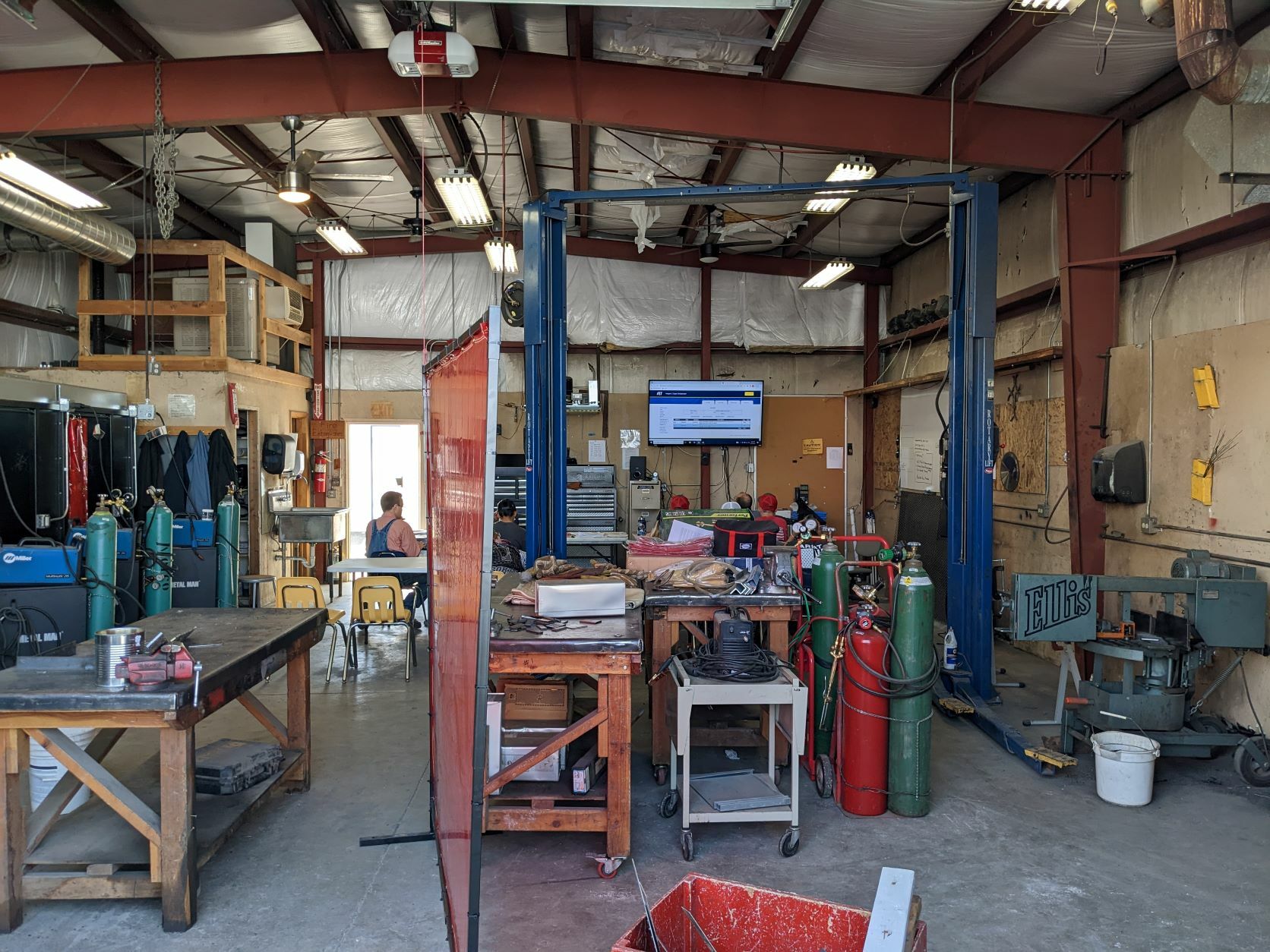
Aside from direct programmatic supports, GOSTEM also offers teacher professional development sessions and extracurricular events for students. This includes inviting students to college and career pathways days to explore their own aptitudes and interests, then connecting their interests with pathways at EOU and other regional higher education institutions.
EOU Reading Clinic
Another effort at EOU seeking to transform student experience and achievement is the University’s Reading Clinic headed up by Ronda Fritz. With a simple but profoundly critical goal of improving reading outcomes for all students in Eastern Oregon, the Reading Clinic supports rural teachers in adopting a wholistic approach to instruction for young children based on the science of reading. Ronda shares that this program fully launched in 2021 with 5 program mentors, but the Reading Clinic has already certified 52 teachers since last fall, with another 30 expected to complete the program in the fall of 2022. Although teachers nationally are stretched to their limits, Ronda was surprised how eager teachers were to transform their approach to building students’ reading skills.
The program for existing teachers at the Reading Clinic utilizes a cohort-model to between mentors and mentees, and offers mentees a $2,000 stipend for their participation. Ronda underscores that lasting and impactful professional development requires consistent and meaningful engagement, so participants meet weekly for classes and readings and get together frequently with their mentors.
The next steps for the program are to articulate a pathway for pre-service teachers. Already, Ronda and the Reading Clinic team have implemented a virtual tutoring mechanism for EOU students to work directly with students in regional schools. Even at this early stage, Ronda admires “the transformation of these college Juniors from students into professionals over the course of this program.”
Oregon Teacher Pathway Program
EOU’s outreach and impact on the Greater Eastern Oregon region is a constant source of pride and determination for faculty and staff. Dave Dallas, our Regional Hub Contact for Oregon and the Pacific Northwest Region, expressed how there is a general buzz of excitement growing at EOU through the new programs solidifying the links between EOU and the larger community.
One such program creating local vitality is the Oregon Teacher Pathway Program. Tawnya Lubbes runs the OTP program, and is passionate about creating a teacher workforce that both reflects the cultural and linguistic diversity present across Oregon, and equips new teachers responsive to the constellation of different cultures and communities in the state.
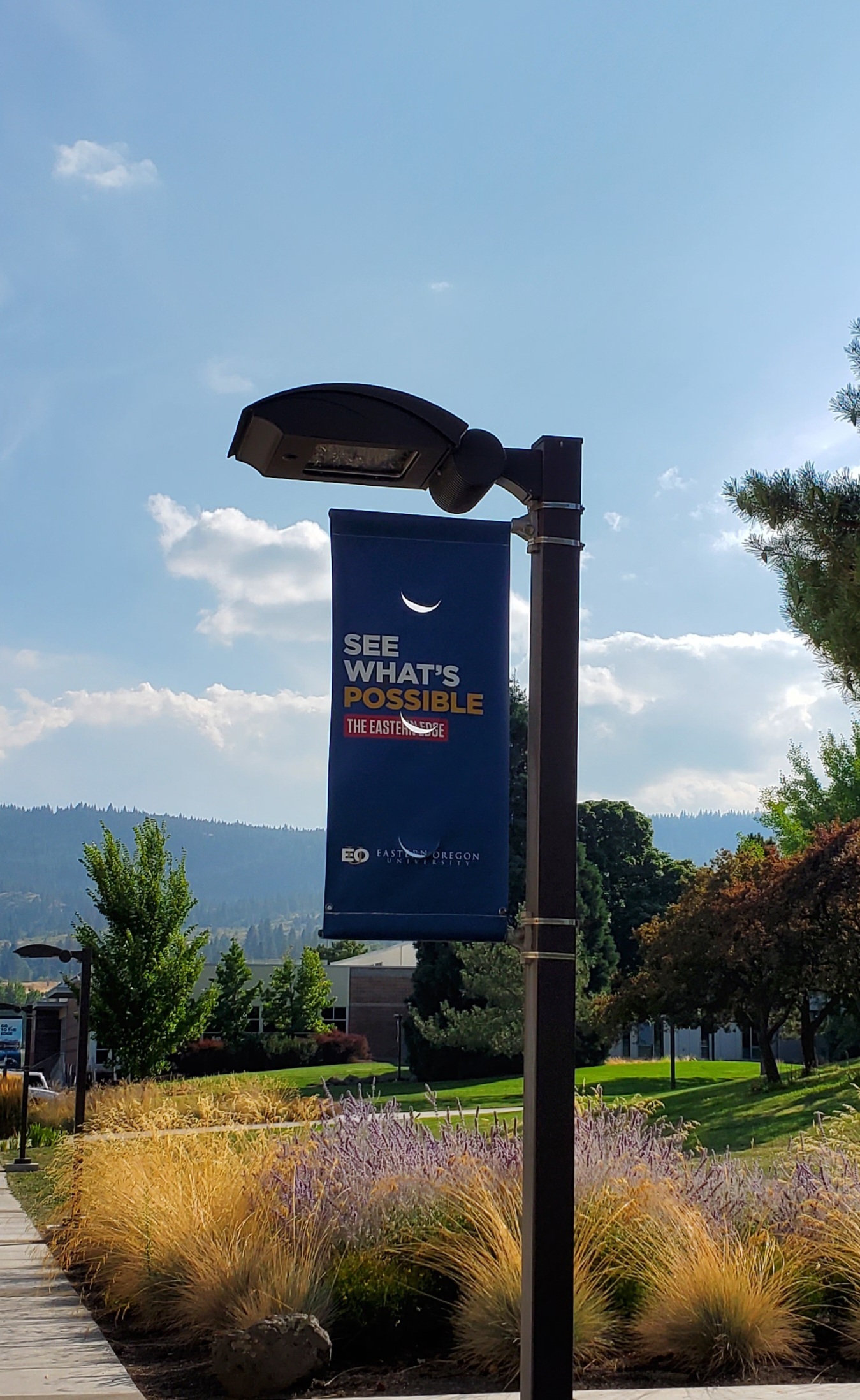
While much of the rural teacher preparation work done at EOU revolves around students attending in person or virtually, Tawnya and OTP actually begin with high school students. She shared that they’re proud to extend this opportunity for high school students to mentor with practicing teachers and take four credits worth of college courses even before they graduate. Students are then given a financial award to kickstart their college career to continue their studies at EOU.
Allowing students to begin their teacher licensure before graduation is a necessary step in the collective work of bolstering the rural teacher workforce. Tawnya also emphasized that these early interventions and incentives directly enable historically underrepresented students to attend college and become a teacher.
Agriculture Entrepreneurship
Along with rethinking the ways in which visionary teacher leaders enter the workforce, EOU has invested in reworking how students approach agriculture. While agricultural studies are traditionally relegated to the fields of science and business, Chad Mueller, head of EOU’s brand new Agriculture Entrepreneurship program, explains that agriculture engages every aspect of a rural community’s economic, environmental, and social systems. Under that vision, Chad has spearheaded a new degree program teaching students about the intersections between resource management industries and rural community development.
This holistic approach to the agriculture profession situates the traditional studies of agriculture within a larger, interdisciplinary network of social relations, supply chain, science, and business studies. In this program, Chad underscores the critical role of social networking, community building, and communications in particular. “Agriculture,” he explains, “is more than just science. Another third of it is business and marketing. And another third is interpersonal relationships.”
The program is inherently place-based, collaborative, and community-focused in how it emphasizes understanding agriculture through the overlap of society, economy, and the environment. Throughout our trip, it is clear to see why EOU was named "Oregon's Rural University", including interdisciplinary efforts like this.
Teach Rural Oregon Catalyst Initiative
Capping off a trip full of wonderful examples of EOU’s tireless devotion to support rural people and places was a visit with Dave Dallas on the University’s signature Teach Rural Oregon program. EOU’s TRO program is a recipient of the 2022 Catalyst Grant Initiative, presenting the program $25,000 in flexible planning dollars to design and implement their own Rural Teacher Corps. Dave has already been able to leverage the funds to bolster EOU’s existing rural teacher programming, grow TRO, and attract matching grants from the Ford Family Foundation and Roundhouse Foundation all to organize the inaugural cohort of their very own Rural Teacher Corps.For TRO’s Masters of Arts in Teaching program, Dave reports that good progress has been made on scheduling out professional development and relationship building events. These connections will then build teachers’ support networks and career resilience.
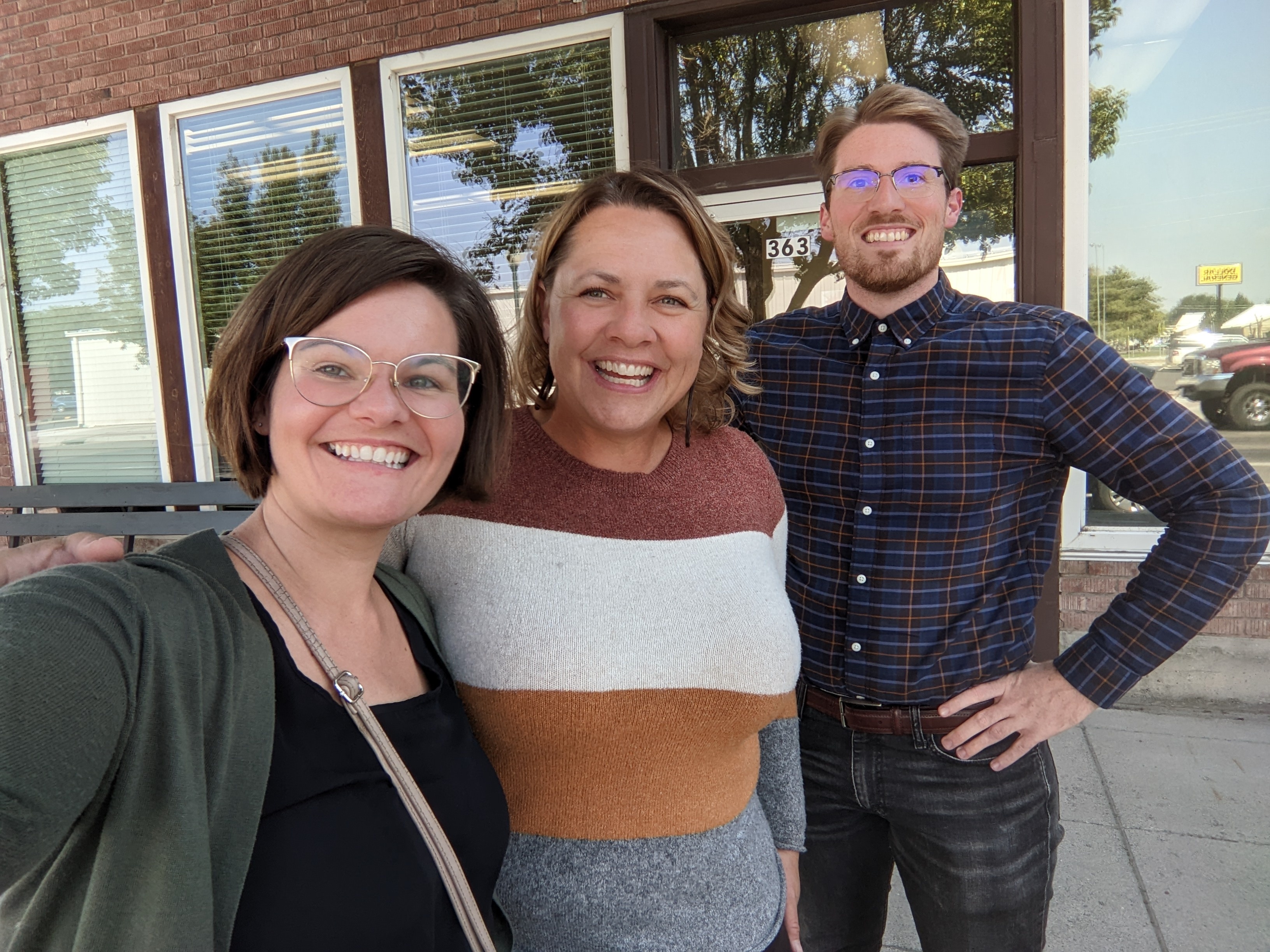
Past the MAT program, Dave shares they are looking forward to forging even more local partnerships in support of the new Rural Teacher Corps. As the closest, in-state institution, EOU is uniquely positioned to serve the larger geographic share of Oregon at a low-cost to students. As a result, Dave and the College of Education team have already been successful in garnering local financial support for their Rural Teacher Corps. With a redoubled outreach and messaging campaign, Dave is hopeful that more communities will rally to uphold a program aimed at strengthening towns in the region.
Dave reports that the new Rural Teacher Corps program received 22 applicants this year, and they were able to admit 12, two more than expected. Additional funding to sustain the program from the state and partners helped create a pathway for more students than normal to join. The students admitted to the program are committed to remaining in a rural place, and over half of them are already teaching in a rural school through provisional licenses.
Dave shared that EOU is interested in expanding their horizons to address issues related to the recruitment, preparation, and retention of rural teachers. This includes expanding hybrid learning options and research ways to offer teacher housing in communities with limited open housing stock.
Meeting the heads of these different programs at EOU, one is struck by the sense of comradery and shared purpose among the faculty and staff at EOU. Together, Dave and his colleagues' shared passion is ensuring every rural student has doors of opportunity open to them to explore all paths forward for their future.
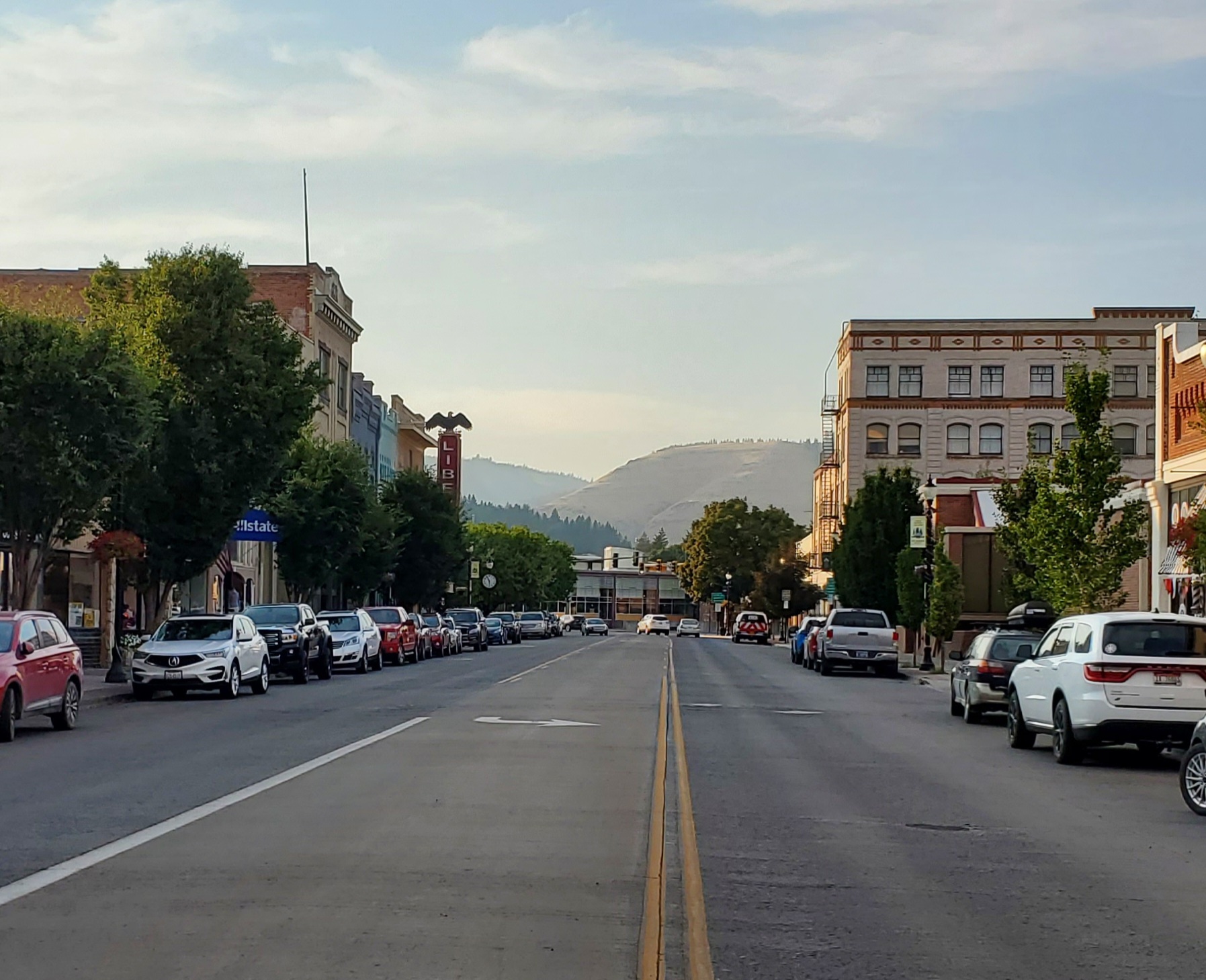
Thank you to Dave Dallas, Eastern Oregon University, and the greater Eastern Oregon community for welcoming the Rural Schools Collaborative team with such friendly open arms!

